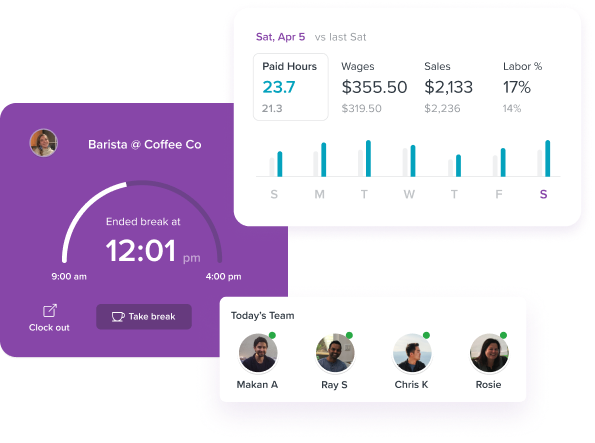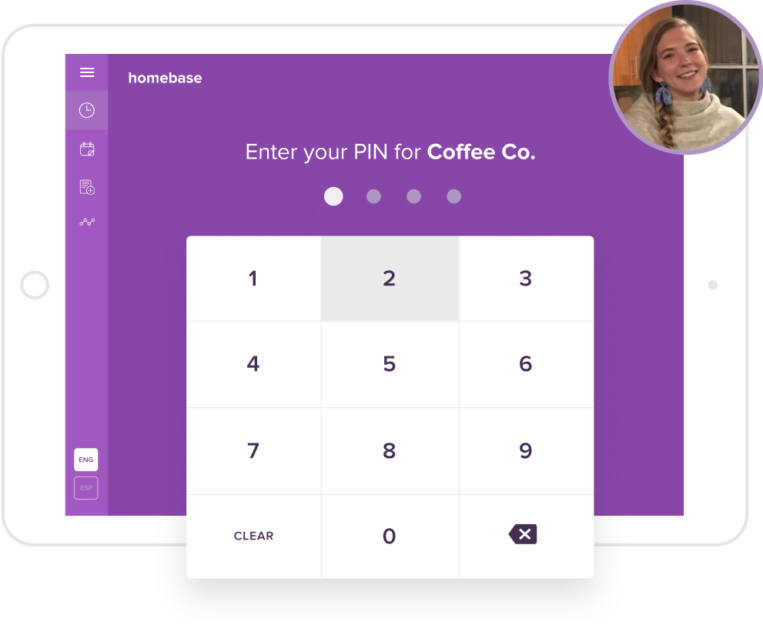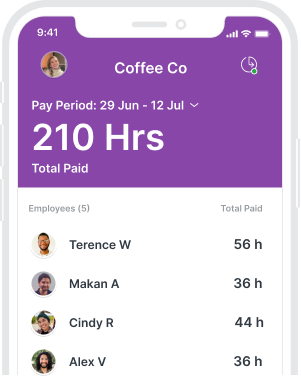Spread of hours: What you need to know
- Under the New York State’s Spread of Hours law, employers are required to pay an extra hour of minimum wage compensation if an employee’s total workday is more than 10 hours long.
- The New York labor law is intended to compensate employees for the actual amount of time they are putting into the job.
- Homebase’s online timesheets makes it easy to avoid having to pay extra in labor costs by tracking hours worked so you can make sure you aren’t scheduling anyone longer than 10 hours in one day.

What is the New York Spread of Hours law?
Under the New York State’s Spread of Hours law, which applies to small business owners in the service industry, employers are required to pay an extra hour of compensation at the minimum wage rate to an hourly, non-exempt employee if the beginning of their shift (or multiple shifts) and the end of their shift are more than ten hours apart. The time includes both time spent on workplace entitlements and obligations as well as meal breaks or off-duty hours.
This wage and hour regulation is aimed to give employees more time for themselves. Although an employee might have a little time off in between split shifts, it’s not always enough to take care of personal matters, go home, relax, and take a break before having to go back to work for another shift.
The New York labor law is intended to compensate employees for the actual amount of time they are putting into the job. To explain further, the 10-hour timeframe from the start of a shift to the end of a shift as a whole, not just hours worked. This means that the timeframe includes working time, breaks, time off for meals, and split shifts. If their actual workday is longer than 10 hours, then they are entitled to a spread of hours payment.
This happens often with restaurant employees taking breaks between the lunch and dinner shifts or hourly workers who make home visits and tend to multiple patients in one day. Homebase’s online timesheets makes it easy to avoid having to pay extra in labor costs. Our timesheet app automatically tracks hours worked, as well as breaks and overtime, whether you operate with monthly or weekly timesheet templates. This way you can make sure you aren’t scheduling anyone longer than 10 hours in one day.

What is spread of hours pay?
Spread of hours pay is the extra compensation an employer gives to an employee if their workday exceeds 10 hours from the beginning of their first shift to the end of their last. The spread of hours compensation needs to be equal to the minimum wage in the area.
In New York, for example, the state minimum wage is $12.50 per hour. However, in New York City, the minimum wage is $15 per hour. Even if your employees work for a larger hourly rate than minimum wage, they are only entitled to the minimum wage in terms of spread of hours pay.
Let’s walk through a spread of hours calculation. Say a restaurant employee inn New York City is scheduled for a double shift. The first shift starts at 11:00 am to 2:00 pm, and then they come back at 5:00 pm and work until 10:00 pm.
Their entire workday would be 11 hours long, meaning they are entitled to receive 8 hours of pay at their regular hourly rate, plus 1 extra hour of minimum wage pay.
Violating the Spread of Hours law has proven to be quite costly for certain employers in New York. For example, a Spread of Hours lawsuit, which was actually a class action lawsuit, cost 6 restaurants in Long Island $1.2 million after it was determined they did not provide kitchen employees a spread of hours payment despite the fact that they had workdays longer than 10 hours.
Homebase’s mobile timesheets can help you prove that you stayed compliant since we maintain and store all your documents, meaning in the timesheets app you can go back through your past documents to show you did not schedule someone for a longer workday and fail to give them spread of hours pay.

Barzotto
Marko Sotto
Owner at Barzotto

Do other states have a spread of hours regulation?
Currently, New York is the only state that requires a spread of hours payment for longer workdays. However, your state may have other unique wage and hour laws that you may be subject to. Take a look at your state labor law guide to learn what the rules are in your area.
And if you have any questions about wage and hour and compensation policies, Homebase HR Pro provides live access to certified HR experts who can review your existing policies and even create new ones.
